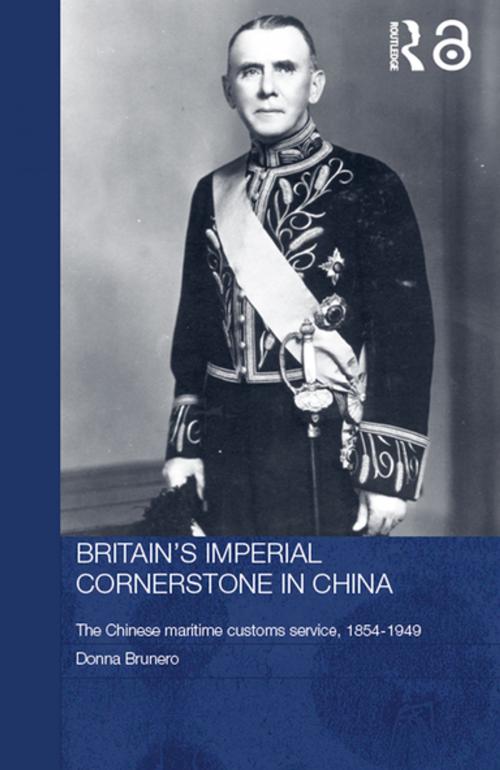Britain's Imperial Cornerstone in China
The Chinese Maritime Customs Service, 1854-1949
Nonfiction, History, Asian, Asia, Social & Cultural Studies, Social Science, Cultural Studies, Ethnic Studies, British| Author: | Donna Brunero | ISBN: | 9781134340934 |
| Publisher: | Taylor and Francis | Publication: | March 2, 2006 |
| Imprint: | Routledge | Language: | English |
| Author: | Donna Brunero |
| ISBN: | 9781134340934 |
| Publisher: | Taylor and Francis |
| Publication: | March 2, 2006 |
| Imprint: | Routledge |
| Language: | English |
This is an in-depth account of the Chinese Imperial Maritime Customs Service, a uniquely cosmopolitan institution established in the wake of China's defeat in the Opium Wars (1842 to 43), and a central feature of the Treaty Port system.
The British-dominated service was headed by the famous Robert Hart who founded a far-reaching customs administration that also encompassed other responsibilities such as marine and harbour maintenance, quarantine, anti-piracy patrols and postal services. This institution sat at a crucial juncture between Chinese and foreign interests, and was intimately linked to British interests and fortunes in the Far East. Following the establishment of the Republic in 1911 there were grave misgivings as to whether the foreign element of the Service would survive. Yet the Service grew in influence and strength, ensuring the foreign inspectorate a continued role in China's affairs.
Delivering an overview of the Service, its bureaucracy, fiscal responsibilities and life for foreigners in its employ, focusing especially on the later years of the Service, Donna Brunero draws on the experiences of the foreign administration of the Service as it attempted to negotiate between Chinese and foreign expectations and interests.
This is an in-depth account of the Chinese Imperial Maritime Customs Service, a uniquely cosmopolitan institution established in the wake of China's defeat in the Opium Wars (1842 to 43), and a central feature of the Treaty Port system.
The British-dominated service was headed by the famous Robert Hart who founded a far-reaching customs administration that also encompassed other responsibilities such as marine and harbour maintenance, quarantine, anti-piracy patrols and postal services. This institution sat at a crucial juncture between Chinese and foreign interests, and was intimately linked to British interests and fortunes in the Far East. Following the establishment of the Republic in 1911 there were grave misgivings as to whether the foreign element of the Service would survive. Yet the Service grew in influence and strength, ensuring the foreign inspectorate a continued role in China's affairs.
Delivering an overview of the Service, its bureaucracy, fiscal responsibilities and life for foreigners in its employ, focusing especially on the later years of the Service, Donna Brunero draws on the experiences of the foreign administration of the Service as it attempted to negotiate between Chinese and foreign expectations and interests.















